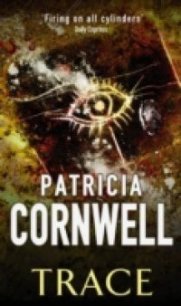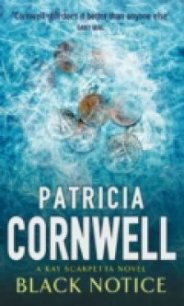All That Remains - Cornwell Patricia (читать хорошую книгу полностью TXT) 📗
Reaching for the phone, I tried Montana's home number again. This time I was rewarded.
"Have you ever considered getting Call Waiting?" I asked good-naturedly.
"I've considered getting my teenage daughter her own switchboard," he said.
"I've got a question."
"Ask away."
"When you went through Jill's and Elizabeth's apartments, I'm assuming you went through their mail."
"Yes, ma'am. Checked out their mail for quite a while, seeing what all came in, seeing who wrote them letters, went through their charge card bills, that sort of thing."
"What can you tell me about Jill's subscriptions to newspapers that were delivered by mail?"
He paused.
It occurred to me. "I'm sorry. Their cases would be in your office.…"
"No, ma'am. I came straight home, have 'em right here. I was just trying to think, it's been a long day. Can you hold on?"
I heard pages turning.
"Well, there were a couple of bills, junk mail. But no newspapers."
Surprised, I explained Jill had several out-of-town newspapers in her apartment. "She had to have gotten them from somewhere."
"Maybe vending machines," he offered. "Lots of them around the college. That would be my guess."
The Washington Post or the Wall Street Journal, maybe, I thought. But not the Sunday New York Times. Most likely that had come from a drugstore or a newsstand where Jill and Elizabeth may routinely have stopped when they went out for breakfast on Sunday mornings. I thanked him and hung up.
Switching off the lamp, I got in bed, listening as rain drummed the roof in a relentless rhythm. I pulled the covers more tightly around me. Thoughts and images drifted, and I envisioned Deborah Harvey's red purse, damp and covered with dirt. Vander, in the fingerprints lab, had finished examining it and I had looked over the report the other day.
"What are you going to do?" Rose was asking me.
Oddly, the purse was in a plastic tray on Rose's desk. "You can't send it back to her family like that."
"Of course not."
"Maybe we could just take out the charge cards and things, wash them off and send those?"
Rose's face twisted in anger. She shoved the tray across her desk and screamed, "Get it out of here! I can't stand it!"
Suddenly I was in my kitchen. Through the window I saw Mark drive up, only the car was unfamiliar, but I recognized it somehow. Rummaging in my pocketbook for a brush, I frantically fixed my hair. I started to run to the bathroom to brush my teeth, but there wasn't time. The doorbell rang, just once.
He took me in his arms, whispering my name, like a small cry of pain. I wondered why he was here, why he was not in Denver.
He kissed me as he pushed the door with his foot. It slammed shut with a tremendous bang.
My eyelids flew open. Thunder cracked. Lightning lit up my bedroom again and then again as my heart pounded.
The next morning I performed two autopsies, then went upstairs to see Neils Vander, section chief of the fingerprints examination lab. I found him inside the Automated Fingerprint Identification System computer room deep in thought in front of a monitor. In hand was my copy of the report detailing the examination of Deborah Harvey's purse, and I placed it on top of his keyboard.
"I need to ask you something."
I raised my voice over the computer's pervasive hum.
He glanced down at the report with preoccupied eyes, unruly gray hair wisping over his ears.
"How did you find anything after the purse had been in the woods so long? I'm amazed."
He returned his gaze to the monitor. "The purse is nylon, waterproof, and the credit cards were protected inside plastic windows, which were inside a zipped-up `Compartment. When I put the cards in the superglue tank, a lot of smudges and partials popped up. I didn't even need the laser."
"Pretty impressive."
He smiled a little.
"But nothing identifiable," I pointed out.
"Sorry about that."
"What interests me is the driver's license. Nothing popped up on it."
"Not even a smudge," he said.
"Clean?"
"As a hound's tooth."
"Thank you, Neils."
He was off somewhere again, gone in his land of loops and whorls.
I went back downstairs and looked up the number for the 7-Eleven Abby and I had visited last fall. I was told that Ellen Jordan, the clerk we had talked to, would not be in until nine P.M. I mowed through the rest of the day without stopping for lunch, unaware of the passing hours. I wasn't the slightest bit tired when I got home.
I was loading the dishwasher when the doorbell rang at eight P.M. drying my hands on a towel, I walked anxiously to the front door.
Abby Turnbull was standing on the porch, coat collar turned up around her ears, face wan, eyes miserable. A cold wind rocked dark trees in my yard and lifted strands of her hair.
"You didn't answer my calls. I hope you won't refuse me entrance into your house," she said.
"Of course not, Abby. Please."
I opened the door wide and stepped back.
She did not take off her coat until I invited her to do so, and when I offered to hang it up, she shook her head and draped it over the back of a chair, as if to reassure me that she did not intend to stay very long. She was dressed in faded denim jeans and a heavy-knit maroon sweater flecked with lint. Brushing past her to clear paperwork and newspapers off the kitchen table, I detected the stale odor of cigarette smoke and a pungent hint of sweat.
"Something to drink?" I asked, and for some reason I could not feel angry with her.
"Whatever you're having would be fine."
She got out her cigarettes while I fixed both of us a drink.
"It's hard to start," she said when I was seated. "The articles were unfair to you, to say the least. And I know what you must be thinking."
"It's irrelevant what I'm thinking. I'd rather hear what's on your mind."
"I told you I've made mistakes."
Her voice trembled slightly. "Cliff Ring was one of them."
I sat quietly.
"He's an investigative reporter, one of the first people I got to know after moving to Washington. Very successful, exciting. Bright and sure of himself. I was vulnerable, having just moved to a new city, having been through… well, what happened to Henna."
She glanced away from me.
"We started out as friends, then everything went too fast. I didn't see what he was like because I didn't want to see it."
Her voice caught and I waited in silence while she steadied herself.
"I trusted him with my life, Kay."
"From which I am to conclude that the details in his story came from you," I said.
"No. They came from my reporting."
"What does that mean?"
"I don't talk to anybody about what I'm writing," Abby said. "Cliff was aware of my involvement in these cases, but I never went into detail about them. He never seemed all that interested."
She was beginning to sound angry. "But he was, more than a little. That's the way he operates."
"If you didn't go into detail with him," I said, "then how did he get the information from you?"
"I used to give him keys to my building, my apartment, when I'd go out of town so he could water my plants, bring the mail in. He could have had copies made."
Our conversation at the Mayflower came back to me.
When Abby had talked about someone breaking into her computer and had gone on to accuse the FBI or CIA, I had been skeptical. Would an experienced agent open a word processing file and not realize that the time and date might be changed? Not likely.
"Cliff Ring went into your computer?"
"I can't prove it, but I know he did," Abby said. "I can't prove he's been going through my mail, but I know he has. It's no big deal to steam open a letter, reseal it, and then place it back in the box. Not if you've made a copy of the mailbox key."


